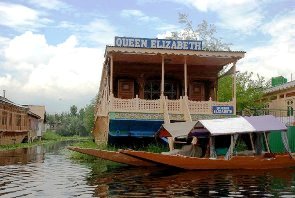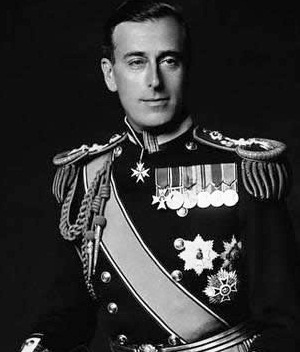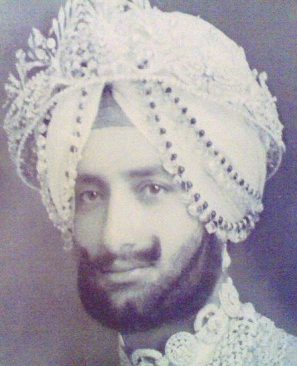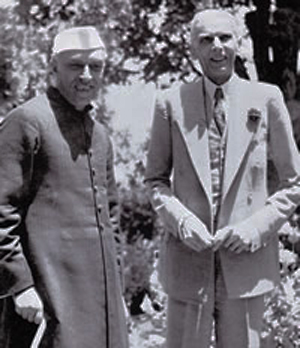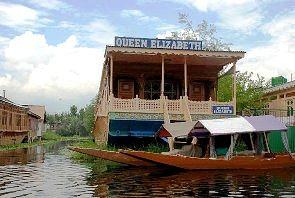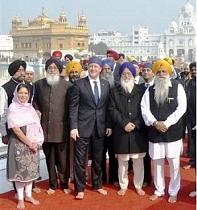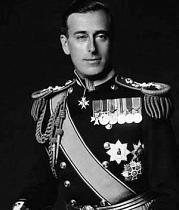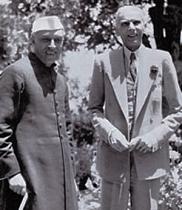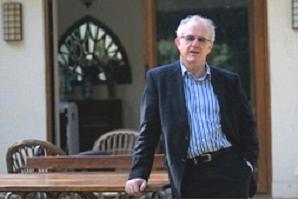Is Kashmir imbroglio a ‘British legacy’?
While "democratically sanctioned" curfews, killings and nauseating display of brute force do not subside; the portrayal of Kashmir imbroglio as a British legacy some believe is a misnomer, an attempt to confuse international community and an aim to consolidate grip on Kashmir through occupation using military power. Adolf Hitler’s war hysteria set the sun on British Empire with a resultant foundation laid for colonies to attain freedom from the then super power. Economically, it became a huge burden for Clement Attlee’s government to carry on ruling Indian sub-continent; hence a hasty retreat from a country of India’s size became vitally important.
Historically speaking; right from 1940s, Australian politicians, academicians, diplomats and writers always showed keen interest in finding a solution to Kashmir problem and now Christopher Snedden in his new book, Kashmir: The Unwritten History, has further revealed little known facts when he says that "Kashmir dispute was instigated by the people of the region, well before the Pakhtoon invasion of Kashmir in October 1947 blamed by India on Pakistan". (Elizabeth Roche, livemint.com March 01, 2013)
The assignment of a convoluted job to Mountbatten of Burma making British exit honourable and dignified; as such the government of Great Britain did not have time to go for any intrigues of "divide and rule" or leave behind a festering wound for divided India to nurse. The leadership of India, Pandit Nehru and Vallabbhai Patel, in a well thought out plan gave final touches to the conspiracy of Kashmir occupation.
The meticulously organised job was distributed amongst Kashmiri Pandits for providing information on the ground, Patiala Raja Yadavindra Singh’s sneak through transfer of army battalions to Kashmir days before the invasion of tribesmen from NWFP, Pandit Nehru taking charge to mesmerise Sheikh Abdullah, MK Gandhi keeping Begum Abdullah and family in good stead, and finally MC Mahajan and VP Menon under the leadership of Vallabbhai Patel to coerce, intimidate and force unsuccessfully Maharaja Hari Singh to agree on signing instrument of accession. The Indian army contingent airlifted to Kashmir to help Patiala forces already stationed, the only role Mountbatten played was to get a commitment from Pandit Nehru of a plebiscite allowing people of Kashmir to decide the future political status of their homeland.
Muhammad Ali Jinnah a prominent leader of Indian National Congress advocated Hindu-Muslim unity and his sincerity and upright character is even acknowledged and acclaimed by Hindutva Bharatiya Janata Party frontline leadership, L K Advani and Jaswant Singh. The parting of ways was necessitated by the attitude of hardliners of the dogmatic Hindu bent of mind and with the passage of time Jinnah was convinced that Muslims of India must have a separate home to live peacefully and in security.
Jinnah was motivated to assume leadership of Muslims and spiritually elated Allama Iqbal, the scholar poet of the east, was instrumental in persuading Jinnah, the barrister from England for his successful professional popularity and unblemished character to assume the leadership of Muslims of India.
United Kingdom has a bounden duty to impress upon India to keep its commitment for conducting a plebiscite in Kashmir under the supervision of United Nations and allow people of Kashmir to freely express their will for either joining India or Pakistan or remain as an independent country. It must be mentioned here that British Labour Foreign Secretary Robin Cook when asked by international media to comment on the situation in Kashmir while on the Queen’s visit to Calcutta said that India and Pakistan must resolve Kashmir, keeping in view the wish of Kashmiri people. And on the same day the Prime Minister IK Gujral on a state visit to Durban, South Africa stated that "Britain is a third rate power". The statement was flashed all over British print and electronic media.
British Prime Minister David Cameron’s recent visit to Pakistan stating the principle official stand of his government over Kashmir upset many in Indian political circles. Answering a question on the visit about what Britain could do to help resolve the Kashmir dispute, he said: "I don't want to try to insert Britain in some leading role where, as with so many of the world's problems, we are responsible for the issue in the first place" . The statement opened a floodgate of historical allegations in India against Imperial power and Cameron’s mea culpa was challenged as being a ploy to appease audience of Pakistan. He was also reminded of ‘evil nature of British Empire’ and the atrocities committed in its name.
The long lost Empire was reminded of copious details of systematic abuse of suspected Mau Mau rebels of Kenya, burning them alive, whippings, beatings and sexual abuse occurrences terming it as the most shameful episodes in British colonial history. Quoting Kenya Human Rights Commission; 90,000 Kenyans were executed, tortured or maimed while 160,000 were detained in appalling conditions on suspicion of their involvement in the uprising. Analysts comparing reported Kenyan historical account finding a lot in common with Kashmir and the statistics about Kashmir provided thereby dwarfed Kenya in all respects.
David Cameron visited India in somewhat tempestuous political atmosphere paying a visit to Sikh Golden temple in Amritsar and at the location Jalianwala Bagh; in the condolence book he wrote: "This was a deeply shameful event in British history, one that Winston Churchill rightly described at the time as 'monstrous' ". The symbolic visit to the site as is believed and observed that whatever gory happened in 1919 was repeated many times over in Kashmir in 21st century. The raid on Golden Temple is reminiscent of episodes that the world saw in the last 25 years razing scores of Kashmir’s holy shrines to ground. Thousands of Sikhs butchered in 1984 Delhi riots were eclipsed by one hundred times the number of people killed in Kashmir.
The only envisioned practical solution put forth by peace loving people within India and abroad, is an independent Kashmir and based on the research made by Christopher Snedden; India and Pakistan has not won anything accept occupation backed by hatred, malice and gory death details. Independent Kashmir will be a win win situation for poor people of the sub-continent particularly the main stake holder’s people of Kashmir. Kashmir must not be punished for displaying benevolence and high moral character when two hundred thousand Muslims were butchered in Jammu and its adjacent areas.
Comments
There are 0 comments on this post


